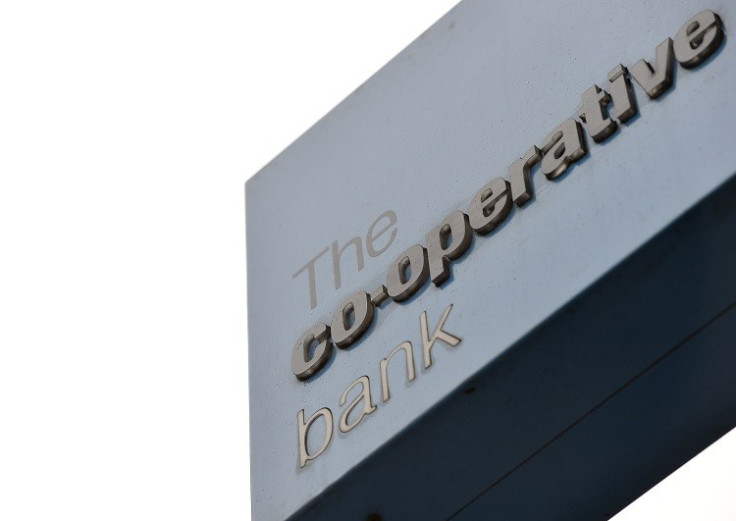Co-op Bank Confirms 15% Branch Closures and Job Cuts

The Co-op Bank's chief executive has revealed that the group has already closed several branches and will cut jobs as part of the management's five year plan to turn around the ailing lender.
Niall Booker, who replaced Barry Tootell in May this year, said it will take four to five years to turn around the fortunes of the "ethical" lender after the bank unveiled a multi-billion pound capital black hole in its balance sheet earlier this year.
"You can see by what's happened to other banks, how long it's taken to turn these things around. It's going to take us four to five years to restructure the bank," said Booker.
The Co-op Bank is one of UK's smallest lenders with 6.5 million customers and a 1.5% share of the current account market. However it is a household name in Britain, as the wider group includes supermarkets, funeral services and pharmacies.
In a longer statement Co-op said it plans to streamline operations by cutting branches and jobs but it stopped short of announcing a set amount of job cuts to expect.
"It is expected that over time digital channels will be customers' preferred point of contact. These enhancements are intended to allow the bank to reduce its call centre and branch footprint whilst maintaining its market-leading levels of customer service," said the bank in a statement.
"Between 30 June 2013 and the end of 2014, the bank expects to significantly rationalise its branch network by at least 15%."
Reports surfaced at the weekend that the Co-operative Group was axing more than 1,000 jobs at its troubled banking arm in a final bid to overhaul its business and finances.
It is understood the job cuts will comprise over 10% of the Co-operative Bank's workforce.
Earlier this year the Co-operative Bank reported a dismal £709.4m (€837m, $1.1bn) pre-tax loss for the first six months of 2013.
This was largely due to a £496m impairment charge against the value of the bank's loans, as well as a £165.5m writedown of IT assets, and another £61m in compensation payments to customers, which included PPI mis-selling.
The bank racked up huge losses on commercial property during the financial downturn and is currently undergoing a major restructuring to avoid government bailout.
In June this year, Moody's slashed the bank's debt rating to junk status, due to concerns that the Co-operative Bank has a black hole in its balance sheet.
The bank has since sought to plug a £1.5bn capital black hole in its balance sheet by converting junior bondholders into shareholders.
It has also set out a rescue plan where six hedge funds will now own around 70% of the bank with parent Co-op Group owning the remainder.
"The announcement today of the rescue package for the Co-op group reminds us of the perils which lie ahead," said Andre Spicer, Professor of Organisational Behaviour at Cass Business School.
"With hedge-funds at the wheel, the bank will become more ruthlessly commercial. Cutting 1000 jobs at the same time as you launch an ethics policy is quite a contradiction. It is likely to alienate many of the bank's customers.
"The result could be customers leaving. Fortunately for the co-op bank, most bank customers are lazy - only changing banks every couple of decades. Maintaining the bank's ethical culture in the face of job cuts and public vilification is going to be hard. It is likely many staff will feel disheartened and ask themselves if this is what they signed up for.
"These changes could open up opportunities for other Co-op banks, but also for newer forms of collective financing such as crowd funding."
© Copyright IBTimes 2025. All rights reserved.






















